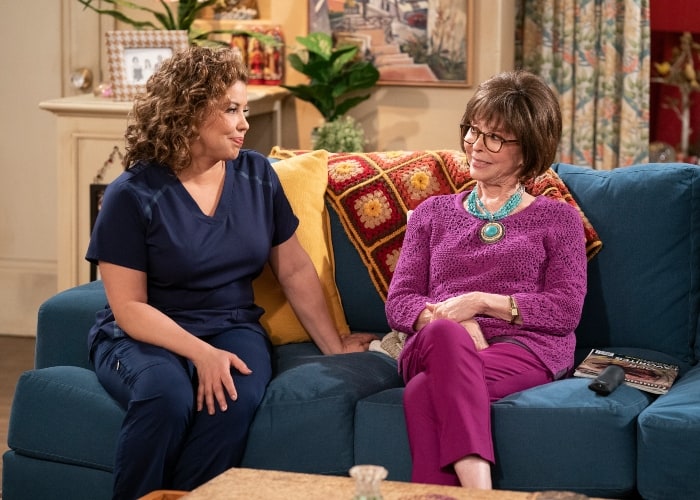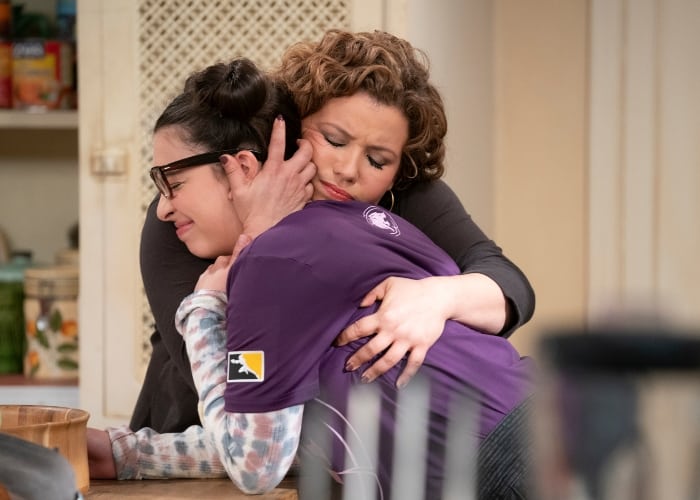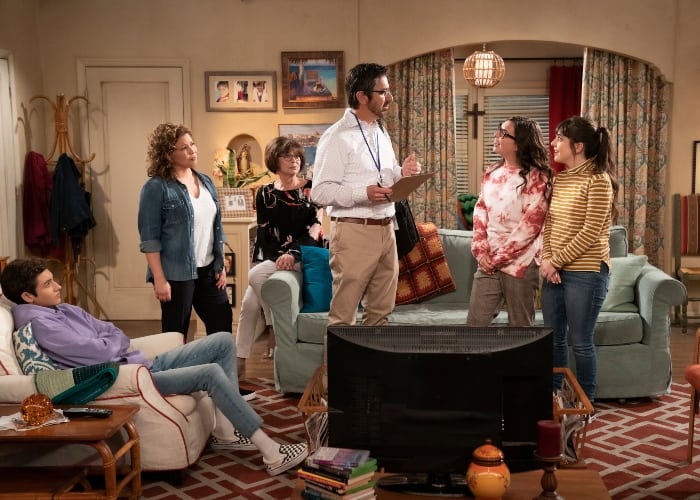
In January 2017, America found itself on an uncharted trajectory. A reality star whose campaign centered on erecting a wall — both literally and figuratively — between the US and other cultures took on the highest office in the country. Besides having an obviously profound impact on the people of America and the world, Donald Trump’s election also changed the type of stories we tell and see on TV, from the advent of “fake news” to the rise of despot-like figures in pop culture. Luckily for us, there was another new trajectory to follow making its debut the same month, that of an on-screen family with realistic intersections of identity who unified in the face of change and difference, always letting compassion and open-mindedness rule. In a time of deep division, thank God for One Day at a Time.
From the start, this Norman Lear-produced sitcom — a reimagining of a 1975 series of the same name — captured audiences by taking on important discussions with nuance, varied perspectives, and good humor. The series follows a Cuban-American family whose members include war veteran single mother Penelope (Justina Machado), queer activist daughter Elena (Isabella Gomez), status-minded teen son Alex (Marcel Ruiz), and devout, traditional widowed grandmother Lydia (Rita Moreno), plus their wealthy, goofball ex-addict neighbor Schneider (Todd Grinnell) and Penelope’s friendly but out-of-touch boss, Dr. Berkowitz (Stephen Tobolowsky). This cross-section of generations, cultures, and experiences is a recipe for misunderstandings and misadventures, and in the tradition of classic sitcoms, One Day at a Time manages to wrap up each half-hour with a lesson learned, albeit one that acknowledges the complexity of the issues at hand.

One Day at a Time has grown since its first season. Not only has the series moved from Netflix to PopTV (with the season premiere also airing on TV Land and Logo), but it’s also evolved its rhetoric, which remains generously educational and couched in nostalgic multi-cam sitcom familiarity, to mirror the uptick in sociopolitical awareness that many everyday Americans have undergone in the past four years. In the first season, Elena is unsure about her sexuality and disheartened by her father’s reaction to her coming out. In the fourth season premiere, she says, “Hi, I’m gay!” by way of introduction to a local census taker (Ray Romano). In early seasons, Schnieder refused to understand his privilege, but in that same premiere scene, he introduces himself to Romano’s character as “Schnieder, cis white male ally.”
Sure, One Day at a Time isn’t explicitly about activism or politics, but the series has always blended together elements of wholesome family entertainment and more subversive, progressive talking points, showing us how a family might really create an open dialogue. Like another series that started on Netflix during the Trump presidency, Queer Eye, One Day at a Time seems acutely aware that it has the rare ability to actually change hearts and minds. Yet after three seasons of carefully laid groundwork, series creators Gloria Calderón Kellett and Mike Royce don’t have to speak about social justice in introductory terms anymore. Instead, the show has earned its moment to dive deep into more specific, rarely discussed issues, like the US census, the scarcity mindset, and the limited perspective of single women of a certain age. By now, the Alvarezes know who they are and what they’re willing to stand up for. And its fans know, too.

And boy, is it good to have the Alvarez family back. At 88 years old, Moreno may be funnier than ever, capable of collapsing studio audiences and at-home viewers alike into a fit of giggles with a simple line delivery or gesticulation. Machado matches her joke for joke, throwing her whole body into hilarious bits that are often the highlight of each scene. The back-half of each previous season has included episodes that are as likely to make you cry as laugh, but the first three episodes of Season 4 were all welcome levity. And while some dialogue is clunky or corny, even jokes that don’t land are endearing — part of the throwback sitcom package we’ve come to love. The series is not exactly all-ages (a story about masturbation gone wrong in the season’s third episode is both uproarious and cheeky), but thanks to its old-fashioned format and thoroughly modern themes, it’s the sitcom that laugh-track-averse young adults needed but may have never had while growing up.
In the wake of the coronavirus outbreak, it was announced that the show would begin filming without a studio audience, and Kellett recently told the Los Angeles Times, “We are just trying to find ways to keep going and to keep doing our work.” With a remote writing staff and an inability to do most press events, it’s unclear whether the end of the season will be impacted by COVID-19, as many TV series reportedly will be. What is certain? In a period during which good things seem scarce, One Day At a Time is still an undeniably good thing.
Related Topics: one day at a time, pop tv, poptv, rita moreno

